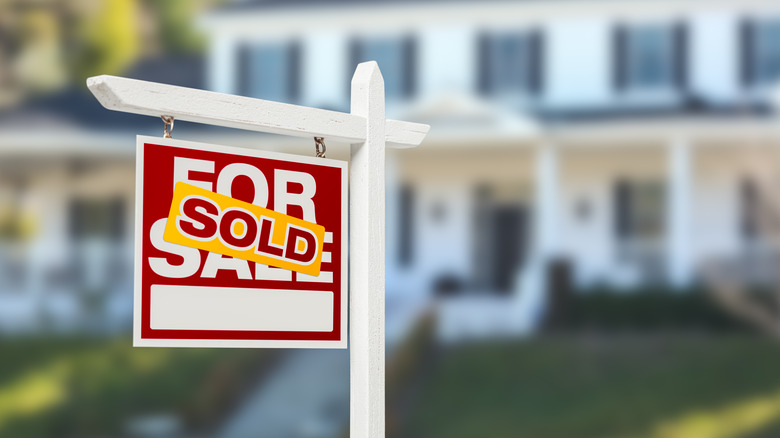What Happens If You Back Out Of Selling A House
Selling your home is a huge decision, so it's important you carefully consider each and every factor that goes into moving all of your belongings and starting anew. Ramsey Solutions says before you decide to list your home on the market, you should figure out if you can settle all of the debt you have with the money you'd receive by selling your home. If you can, your financial situation is going to vastly improve. If this is doable, and you have enough equity and another place to live, it looks like you're ready to sell!
So, you've listed your home and someone put in an offer. You've crossed the t's and dotted the i's, but now you're getting cold feet and aren't sure you really want to move. Perhaps, you received a higher offer and want to proceed with that buyer instead, or you just can't bear to leave the home where you grew up. Can you actually back out of a housing contract once it's been signed? Before you back out of selling your home, you need to consider the consequences you may face by doing so.
When the seller backs out
After the seller accepts the buyer's offer, both parties sign a home purchase agreement that lists the terms and conditions of the sale. At this stage, the buyer and seller lay out their contingencies under which they can walk away from the sale without consequence (within a certain time frame), Rocket Homes explains. If either party wants to back out for reasons outside of those listed in the agreement, they may face legal action or be subjected to compensating the other party for their time.
Should you back out of selling your home, and the terms and conditions of the agreement call for you to compensate the buyer, you could be paying big money. There have been cases where the seller owed the buyer $20,000 in compensation, as noted on HomeLight. This amount varies per situation and depends on what the buyer feels is fair. However, in certain circumstances, the buyer can sue the seller for breaching the signed contract. In this case, the judge could even order that the sale be finalized, and the buyer receives the deeds to the house.
When the buyer backs out
On the other hand, if the buyer decides they don't want to go through with the sale for reasons outside of the purchase agreement, you as the seller won't be reprimanded. If this type of situation occurs, and the buyer has already paid their down payment (about 1% to 3% of the purchase price), the seller is permitted to keep the money, otherwise known as liquidated damage, explains Rocket Homes. In cases where the buyer has gone silent, missed a deadline, or fails to make a deposit, the seller can also walk away without penalty, according to Bankrate.
No matter if you're buying or selling, the best way to prevent any legal issues is to really think things over to ensure it's the best idea for you. It's better to make this decision now before you're face-to-face with a purchase agreement and a pen in your hand. If you do want to sell or buy a home, make sure you list out every contingency you can think of to protect yourself if things go south.


